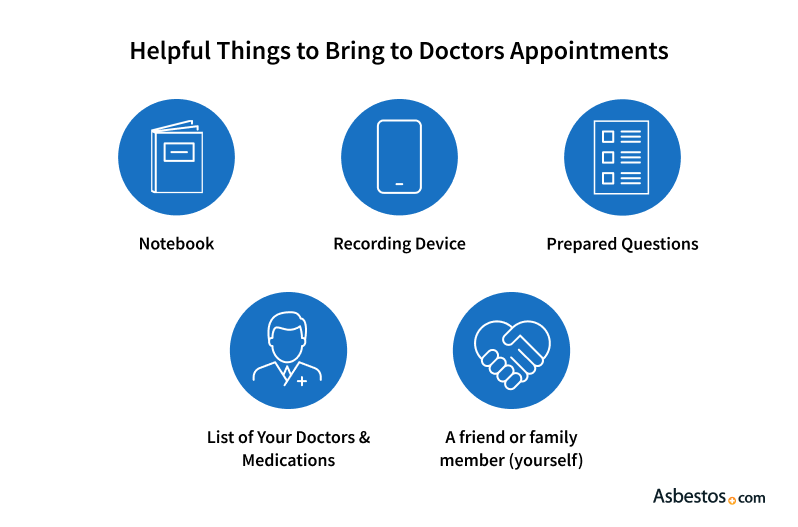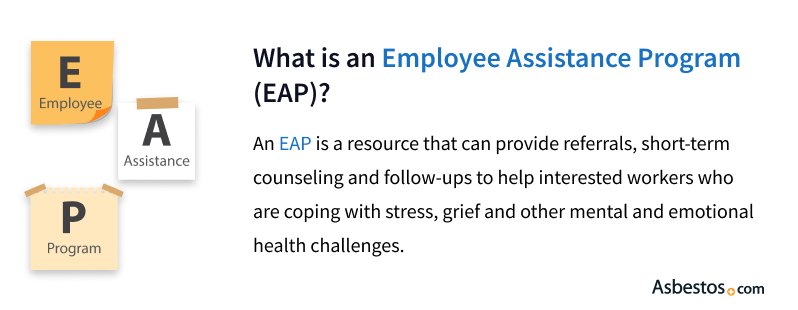Communication Strategies for Mesothelioma Caregivers
Being a caregiver for a loved one with mesothelioma isn't easy. They may have questions about what resources are available to support them as they try to offer the best possible care to their loved one. It's important for caregivers to communicate their needs and get the answers they need.

Communication Tips for Caregivers
Mesothelioma caregivers communicate with many people to coordinate care for their loved ones. They speak with family members, friends, patient advocates, co-workers, medical professionals and insurance companies to provide the best possible care. And they communicate with their loved one whose mesothelioma diagnosis has significantly affected them.
Clear and concise communication will help caregivers avoid misunderstandings. Aim for a plain, assertive and constructive communication style. When you’re kind and assertive, people are more likely to listen and help.
Communicating With Specialists
Asking the right questions when communicating with mesothelioma specialists, nurses and other medical professionals is key to understanding treatment and recovery. Make a list of all your questions ahead of time. Consider recording the appointment so you don’t have to write down every answer. Ask about booking a longer appointment to ensure all your questions are answered.
One of the most important communication roles for caregivers is advocating for the patient. This means making sure they get all the necessary medical care, support and assistance they need to maintain a good quality of life. This may involve speaking up at medical appointments if care is lacking or calling insurance companies to fight for coverage. Advocating for the patient can feel exhausting at times. It’s important for caregivers to get the support they need to cope.

Caregivers may encounter hurdles while navigating the health care system, but patient navigators can help. Many hospitals and cancer centers now employ patient navigators. They help patients and families understand the health care system and assist with insurance issues.
Communicating With Your Loved One
When someone you love has mesothelioma, it can be hard to know what to say. You may worry that bringing up anything related to the diagnosis will upset them.
- Try to share your thoughts while remaining sensitive to your loved one’s feelings.
- Maintain an open line of communication, which can foster a kind and loving relationship between the caregiver and their loved one.
- Talk daily about a variety of topics so your conversations don’t always revolve around cancer.
- If you can’t agree on something important, try to find common ground and consider other options. Sometimes you may have to agree to disagree or ask a mediator to help.
- Schedule family meetings to help maintain communication and cut down on time spent making sure everyone is up to date.
- Use “I” statements rather than “you” statements. This fosters accountability and avoids blame. You might say, “I need a break,” rather than, “You aren’t doing enough to help me.”
It’s important for caregivers to communicate how much they care. Your actions can demonstrate this, but expressing the feelings with words may mean a lot to your loved one.
Common Caregiver Questions
Asking the right questions of medical professionals can make all the difference when it comes to overcoming caregiving struggles. Open conversations can help you understand caregiver duties and know what to expect, though the responsibilities of a caregiver may vary depending on individual roles and relationships.
- Are there caregiving resources in my community?
- Can I access the online patient portal?
- How can I help my parent if I don’t live nearby?
- How can I encourage my parent to accept help?
- How do I ask other people for help?
- How can I find respite care?
- Is there a way to handle caregiver stress and prevent burnout?
- My family members disagree on how to care for my parent. What help is available?
- What should I do to help get my parent’s legal and financial affairs in order?
- Where can I learn more about caregiver roles and responsibilities?
Bring something to take notes with during appointments. Doctor offices may also share handouts about helpful caregiver resources available online or in your area.
Mesothelioma Caregiver Resources
Being a mesothelioma caregiver involves a variety of challenges. Doing it alone is difficult. Make it a priority to educate yourself about caregiver resources and build a circle of support.
- Caregiver Facebook Group: The Mesothelioma Center hosts an online private support group exclusively for caregivers. The group helps family members cope with their role as caregiver and provides support and insights from those dealing with similar issues.
- Caregiver Benefits can help ease the financial stresses of caring for a loved one.
- The VA Program of Comprehensive Assistance for Family Caregivers provides VA Caregiver Benefits to family members caring for veterans with service-related mesothelioma. Benefits include a monthly stipend, respite care, mental health counseling and more.
- Support groups can help. The Support Group from Asbestos.com, for example, is for mesothelioma patients and their caregivers. Licensed mental health counselor Dana Nolan leads its monthly meetings.
- Planning for a medical emergency can give caregivers peace of mind knowing they’re prepared for future emergencies.
- Hospice Care offers end-of-life support that helps caregivers and families meet the physical, emotional and spiritual needs of their loved ones.
- Advance health care directives are legal documents that describe a person’s end-of-life plans or wishes for their health care at the end of their life. Examples include a living will and durable power of attorney for health care.
- Managing grief can be overwhelming. Speaking to grief counselors can help loved ones cope with loss, shock and feelings of grief.
Mesothelioma caregivers may become so concerned with their loved one’s needs that they don’t attend to their own needs enough, which can lead to caregiver burnout. Your loved one’s cancer doctor or mesothelioma lawyer may be aware of unique resources in your area to avoid burnout. These can include support groups, respite care and support services.
Caring for a Loved One With Mesothelioma
In most cases, it takes more than one caregiver to assist someone with mesothelioma. Loved ones often divide tasks among family members. Spouses or adult children tend to take on a primary caregiving role, and this role requires a lot of support from secondary caregivers.
One-fifth of American workers must manage both jobs and caregiving responsibilities. Talking to your employer is the first step in finding suitable solutions to help balance work and caregiving. Depending upon where you work, you may be eligible for paid and unpaid time off and access to employee assistance programs.

The Family and Medical Leave Act of 1993, known as FMLA, ensures caregivers can take time off work to care for an immediate family member without the risk of losing their job. It allows eligible employees up to 12 weeks of unpaid leave to care for a seriously ill family member.
When primary caregivers aren’t getting enough help, they may consider hiring a professional caregiver. Deciding whether to hire a professional can be hard, but sometimes it’s necessary to provide the best care. Caregiver burnout is serious and can lead to health problems if not addressed quickly.
Recommended Reading


